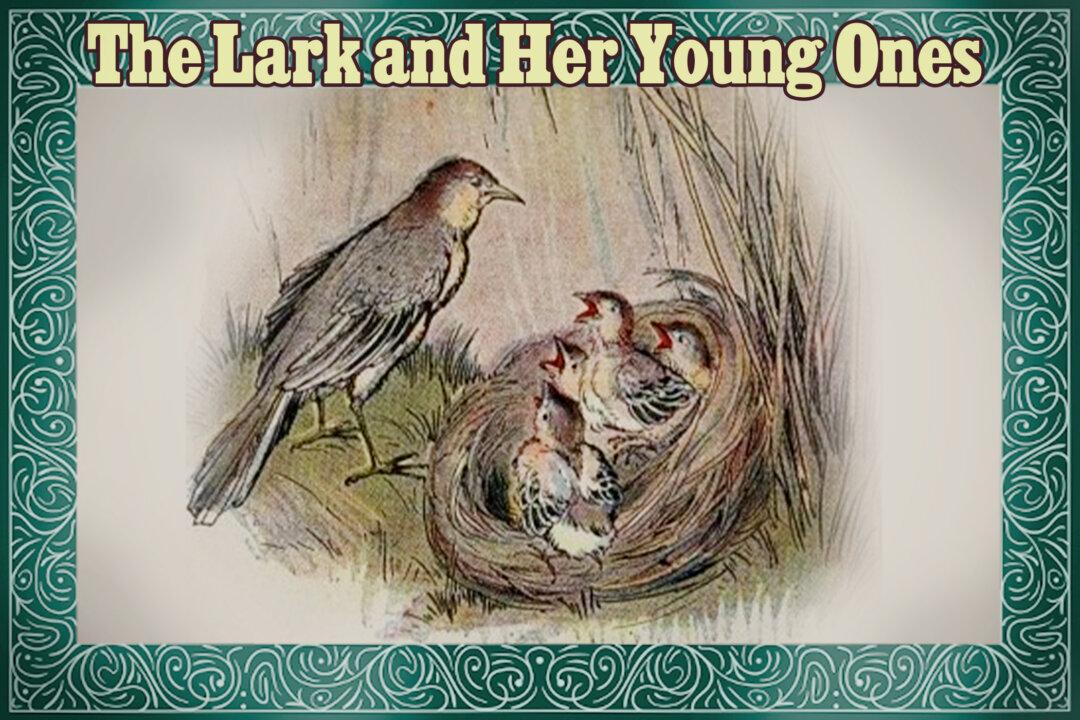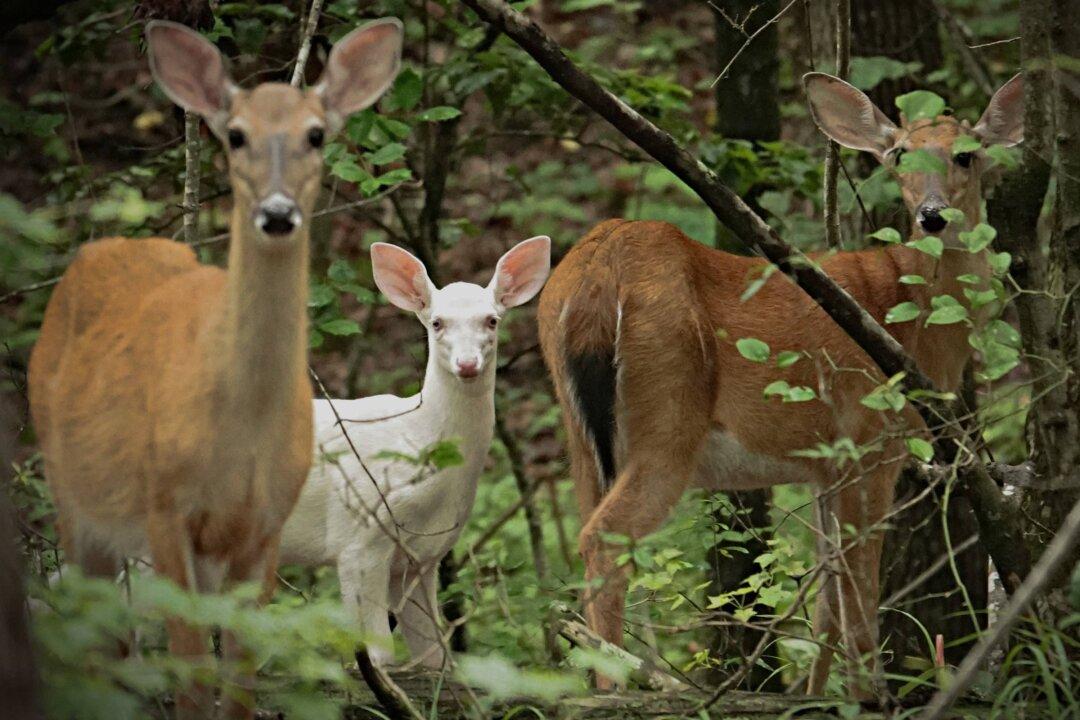A Lark made her nest in a field of young wheat. As the days passed, the wheat stalks grew tall and the young birds, too, grew in strength. Then one day, when the ripe golden grain waved in the breeze, the Farmer and his son came into the field.
“This wheat is now ready for reaping,” said the Farmer. “We must call in our neighbors and friends to help us harvest it.”






